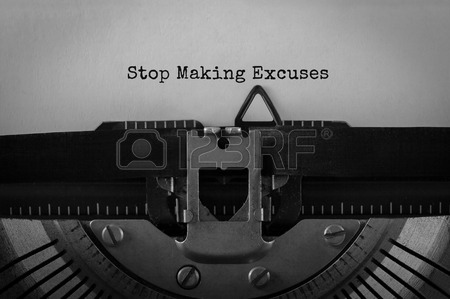Tips and tricks for a happy, healthy freelance life (an interview with ProCopywriters)

I recently took part in a live, one-hour interview with ProCopywriters, the professional association for copywriters in the UK.
We chatted about the wellbeing aspects of freelance life – dealing with the ups and downs, as well as the importance of boundaries, community and asking for help – and I shared tips to help freelance copywriters become more successful with less stress and burnout.
The interview touched on some of the tips and topics that are covered in my new book – Survival Skills for Freelancers. Here’s a transcript.
Q Welcome to #ProCopyChat, Sarah! Please tell us a bit more about yourself.
A Hello! I’ve been a freelance marketing copywriter for over 20 years. I love freelance life, but I reckon it took me the best part of 15 years to get good at the business end of it – and I made a lot of mistakes along the way.
I’ve now written a book for freelancers – Survival Skills for Freelancers – to share my experience and help freelancers reach their definition of success a whole lot quicker than I did!
Q Sounds great! Can you tell us a bit more about the book for freelancers, and how it came about?
A Sure! So, most of us decide to go freelance because we have a skill we want to share. But in most cases, we’re unprepared for how relentless the business end of freelance life can be, let alone the challenges it can present to our mental health!
The book is designed to help freelancers become more successful by working smarter, not harder. I’m hoping readers will learn from the things I’ve done that worked as well as the things that didn’t!
It’s a combination of heart-on-your-sleeve anecdotes and tried and tested advice based on my own experience, backed up by research, resources and quotes from the freelance community.
Q How and why did you become a freelancer?
A I was working as an editor and account manager for a magazine publisher in Clifton, Bristol when I became pregnant. I knew I didn’t want to go back to full-time work, and liked the idea that I could fit freelance work around family life. My employer promised to provide the odd piece of work, so it seemed like a good decision.
I worked on my brand and sent out cold enquiries while I was on maternity leave, then worked three days a week while my daughter was at nursery. My business grew as my family grew. And here I am – now with grown-up kids – still loving freelance life.
Q4 What do you believe are the most important qualities to make it as a freelancer?
A Good question! I don’t think you have to be a particular type of person to make a successful freelancer. There are always exceptions. But there are traits that help and others that hinder. Skills and talent alone aren’t enough to guarantee success.
It helps if you’re determined, motivated, organised, ambitious, disciplined, confident, outgoing, flexible, reliable, personable, patient, thick-skinned… it’s a pretty long list!
Q What would you say to anyone reading that list who knows they don’t have all those qualities?
A I’d say don’t worry too much. No one will tick off every quality on the list. If you don’t have any of them, you might struggle more than most, but I’m neither patient nor thick-skinned and I haven’t let that hold me back!
Q Isolation is a real challenge for many freelancers. How do you recommend we deal with it?
A It absolutely is. So many of the freelancers I’ve talked to loved the idea of working from home but found themselves completely unprepared for the loneliness! It’s easy to feel like no one understands what you’re going through – but they do!
Connection is vital when you’re freelance, and there are three fundamental ways to find it:
- online communities (like this one, or the many Facebook groups that exist for freelancers)
- networking groups and events
- coworking spaces and coffee shop working
The great thing about the online community is that – under normal circumstances, at least – it spills out into real life with events and conferences. This means it’s possible to make great real-life friendships with people who are in the same boat as you, and who really get it.
We may be facing a temporary ban on face-to-face networking and coworking, but many groups are already taking their meetings and events online and getting great results. And, of course, we won’t always be facing the unprecedented situation we’re in right now, with COVID-19.
Q How have you dealt with the unpredictability of freelance life over the years?
A I don’t think you ever really get used to the peaks and troughs of freelancing. Quiet spells are pretty rare for me now, but I still keep a list of projects I want to work on, blogs I want to write and books I want to read, in case work does drop off.
Having too much work can be just as problematic as not having enough, though. Either you work yourself into the ground, boundaries go out the window and your mental health suffers as a result, or you can do what I do – have an arrangement with a small team of trusted freelancers who you can pass work on to when you need to. You’re solving the problem for your client and helping another freelancer into the bargain.
Q There’s a lot of talk about imposter syndrome. Do you suffer from it, and how do you deal with it?
A Yes, absolutely – even now! Self-doubt can hold you back if you let it, so don’t let the fear of failure get in your way. Celebrate your wins – even the little things – so you can see how far you’ve come. And don’t compare yourself to others!
It’s easy to put things off if you keep striving for perfection but know this: there’ll never be a right time and you’ll never be completely prepared. Just do the best that you can do. Sometimes good enough really is good enough.
Q You have a chapter in your book about avoiding burnout. Can you share a few tips here?
A Of course! This is something I feel very strongly about and I go into a fair bit of detail about it in the book. In a nutshell, it’s about setting boundaries, asking for help, learning to say no, and taking simple steps to look after yourself.
It takes time to learn what works for you, but most people need fresh air, exercise, a balanced diet and decent quality sleep as a minimum. It sounds obvious, but if you’re not feeling your best you can’t do your best work.
Above all, it’s important to know it’s okay not to be okay. You’re not alone, you’re not the only one who feels this way, and you are perfectly normal. Respect your boundaries, prioritise your own wellbeing, and keep talking!
Q When and where can we get hold of your book? And will you be promoting it at any freelance events in the future? (Coronavirus permitting!)
A My book for freelancers, Survival Skills for Freelancers launched on 18 June, and is available on Amazon in paperback, Kindle and soon to be audiobook formats.
As for events, I have a few podcast interviews lined up and I’m always keen to do more. Ultimately, I’d love to speak on wellbeing and mental health for freelancers. (Spread the word if you know any event organisers who might be interested!)
Website copywriting for a Cotswold tourist attraction

The client: Painswick Rococo Garden
Painswick Rococo Garden is one of Gloucestershire’s best-kept secrets. As the UK’s only complete surviving rococo garden, it combines the great outdoors with a cheeky peek into the flamboyance of the early 1700s, thanks to its colourful follies and unique features.
The need
Much-loved within the Cotswolds, Painswick Rococo Garden is best known for its incredible annual display of snowdrops, which attracts visitors from far and wide – but this reputation as an early spring garden was failing to optimise visitor numbers throughout the rest of the year.
The attraction is supported by the Friends of Painswick Rococo Garden – a group of trustees responsible for the garden’s upkeep and ongoing restoration. Upcoming changes to the way the attraction is funded meant it needed to become more commercial, working harder to attract family visitors, and to become known as a garden for all seasons. A new website was the perfect starting point to address these challenges.
The solution
I met Painswick Rococo Garden marketing manager, Claire Barnes, to talk about the aims of the new website. I began the copywriting process by delving deep into the things that make the attraction such a special place, gaining a clear understanding of the opportunities that were available by promoting the garden to a new audience and attracting visitors all year round.
The previous website firmly positioned Painswick Rococo Garden for an audience of garden enthusiasts. It talked about the features, history and location of the garden, and provided plenty of practical information, such as admission prices and opening hours.
I recommended a fresh, approachable tone of voice that would appeal to a younger, family audience without alienating current supporters, a structure and flow that takes visitors on a journey through the seasons, and a frequently asked questions (FAQs) page that makes information easy to find, as well as helping with SEO.
Descriptive and emotive language throughout the new website brings Painswick Rococo Garden to life, evoking the feelings and emotions of visiting this beautiful garden, and positions it as a top Cotswold attraction and a garden for all seasons.
In the client’s words…
“Sarah immediately understood our needs and what we wanted to convey with our new website for Painswick Rococo Garden.
“She has a breadth of knowledge across copywriting, SEO, marketing and design, skilfully employing them all to create hardworking and engaging copy.
“Getting an independent, fresh perspective on your company is an extremely valuable exercise and Sarah really helped to ensure we were considering the needs of our customers.
“Sarah has been a delight to work with: very friendly, highly professional, delivering on time and exceeding expectations. We’re very excited to be launching the new website shortly.”
Claire Barnes, Marketing Manager, Painswick Rococo Garden
www.painswickrococogarden.com
Environmental policy? Behave – I’m a freelancer!

Does your business have an environmental policy?
I don’t mean some going-through-the-motions greenwash document that you write and then forget about. I mean a proper commitment to reducing your impact on the planet.
“I’m a freelancer. What’s the point? I can’t make a difference on my own!”
Tell me about it.
Truth be told, I’m a bit of an eco worrier. And no, that’s not a typo.
I find David Attenborough docs almost too hard to bear these days, let alone some of the hardcore stuff shared by environmental activists such as Extinction Rebellion.
It’s so easy to decide there’s no point trying.
But just the process of thinking about the things you do each day can lead to positive changes.
Me, myself and I
I wrote my own one-page environmental policy a few years ago. And while these things are embedded in my day-to-day routine, the summary itself has never seen the light of day.
The idea of sharing it made me feel a bit cringey and uncomfortable.
Isn’t it a bit… worthy?
But then I heard a talk at a local networking event, and it got me thinking.
If I can get over myself and share the steps I’m taking to be more sustainable, maybe it’ll encourage others to do the same.
So here’s my utterly-imperfect-but-it’s-a-start commitment to treading lightly.
(Even if it does still make me cringe just a little bit.)
Sarah Townsend Editorial Limited
Environmental policy
I am committed to operating my business in a way that is mindful of the environment and to taking action to keep my impact on the earth’s resources to a minimum.
To help me do this, I promise…
- to buy 100% renewable electricity from Good Energy*
- to generate my own electricity using solar panels
- to make my next lease car 100% electric (it’s on order!)
- to use public transport to attend meetings and events wherever possible
- to work from public spaces rather than heat my home
- to recycle all paper, ink cartridges and other recyclable materials
- to make a monthly donation to UK environmental charity, the Woodland Trust
- to minimise the amount of paper waste I produce by only printing documents when necessary, and always using both sides of the paper
- to always stick on an extra layer before putting on the heating (I’m a big advocate of double tights and double socks!)
- to use recycled paper for the printing of any business stationery
- to minimise my use of water and energy, to reduce my carbon footprint
- to ensure coffee, tea and the other important things that get me through the day are Rainforest Alliance Certified
- to have video meetings where possible, to avoid the carbon cost of travel
- to work with suppliers who share these values, where possible
I know there’s more that I can do – there’s always more that we can do – but it’s a step in the right direction. I hope it inspires you to make small changes to lessen the environmental impact of your freelance business.
*If anyone is thinking of switching to Good Energy and you use this link to sign up, we’ll both get £50. And if you let me know you’ve signed up as a result of reading this post, I’ll donate £25 to the Woodland Trust.
Specialist or generalist: which type of copywriter is right for your business?

A tweet from Alasdair Murray – who describes himself as ‘the recruitment copywriter’ – got me thinking.
Specialist copywriter vs generalist copywriter: which is best?
To niche or not to niche. It’s one of the biggest considerations for anyone getting started in copywriting – and equally important for any business choosing the right marketing copywriter to work with.
“Do I specialise in one area or industry?” asks the aspiring copywriter.
“Do I need a specialist in my industry?” asks the business owner.
In the 19 years that I’ve worked as a freelance copywriter, two questions crop up with predictable regularity: “How did you get started?” and “Do you specialise?”.
My answer to the latter is yes. I specialise in writing clever copy that helps businesses become more successful.
Cheating, right?
You were expecting me to say, “Yes. I specialise in travel/engineering/unicorn maintenance*” *delete as appropriate
To answer the first question… (stay tuned – it’s relevant)
I started my career in financial services marketing. I wrote shiny brochures for new investment products, leaflets about mortality and morbidity to help advisers sell more life assurance, and pension marketing messages about the cost of delay.
Did this early career choice make me want to specialise as a financial services copywriter?
Did it heck.
Don’t get me wrong. I loved my job. Really. Bloody. Loved it.
Nothing to do with swanky lunches in Canary Wharf with Ogilvy & Mather (as they were back then) or the glamour *cough* of art directing photo shoots for those investment brochures.
(Okay, maybe a smidge. I mourn those days. Today’s corporate entertaining is a one-shot skinny latté at my gym.)
That job was just about the best start I could have had to my copywriting career. In my opinion, real-world, earn-your-stripes commercial experience backed up by on-the-job training beats the pants off academic study – but each to their own.
To the matter in hand…
If you’re an aspiring freelance copywriter…
(Business owner looking to hire the right copywriter? You can skip this bit.)
There’s no right or wrong answer to the question of whether or not you should specialise.
If you’ve spent your career working in a particular industry and you still enjoy it, you may well want to stay there.
It’s where you’ve made connections, where you’ve built up your experience, and where you really know your stuff.
For you, writing about your specialism is second nature. You know it all already.
Decision made.
But wait…
For me, the best thing about working across a wide range of industries is the variety.
No two jobs are the same.
I don’t spend my days trying to come up with ingenious new ways to sell the same product or service.
Every project is a fresh opportunity to understand a new market’s challenges, audience and opportunities. Every job is as exciting and different as the last. It’s often a steep learning curve, but my god it’s rewarding.
Nineteen years into my freelance career and I love this job even more than when I started.
Would I be saying that if I’d specialised? I don’t know.
If you’re struggling to decide, trust your gut instinct and try not to overthink it.
What’s the worst that can happen? You set yourself up as a specialist cupcake copywriter, or the authority on orthopaedics and it doesn’t work? Onwards and upwards.
Don’t wait to perfect your idea – start from where you are, and give it your best shot. You can always revisit and refine later. (That’s a whole other blog post…)
Let me know how you get on.
If you’re a business owner choosing a copywriter…
One of the best things about working with someone who doesn’t specialise in your industry is that they don’t specialise in your industry.
Sorry?
It’s simple. Writing copy that sells involves understanding what makes your business special, and what makes your customers tick.
A specialist already knows this. They’ve written this stuff many times – heck, they may even work for your biggest competitor.
A non-specialist makes no assumptions. They see things with fresh eyes and the same curiosity your potential customer has when they first stumble across your business.
They ask the right questions to find out how your business works, the problems you solve for your customers, and what makes your product or service better than the competition.
I may not be familiar with your industry. I may not have written a website for one of your competitors. But you bet your life that what I write for you will be fresh, and relevant, and incisive.
And at the end of the day, isn’t that what all businesses want?
__
In the interests of fairness and balance, here’s the view from the other side of the fence, written by the aforementioned recruitment copywriter, Alasdair Murray.
Copywriting myths debunked: time to stop making excuses!

You know exactly why you need a copywriter.
You know a copywriter can help get your business noticed for all the right reasons.
That they’ll help you identify the special essence that’s unique to your company – the things that make you stand out from the crowd.
And that they’ll help you articulate the spirit of your business in a way that convinces your target market to choose your business, buy your products, and hire your services.
The reason you haven’t hired a copywriter isn’t because you don’t know you need one.
It’s because you’re making excuses.
You’ve begun to believe those myths you churn out to justify why you keep writing your own copy. Those same myths that stop you taking the plunge and choosing a copywriter who can take away the pain, save you time and help you get a head start on your marketing.
Here are four of the most common barriers to using a copywriter.
Which do you identify with?
Copywriting myths
Myth 1: It’s only words
“Surely, I can write the copy myself – why do I need a copywriter?”
Whether you consider yourself a reasonably capable writer or you have an English degree, there’s a big difference between everyday writing and writing to sell.
A copywriter will get inside the head of your customers. They’ll help you identify the things that make your business different – special, even – and articulate those things in a clear, concise and compelling way.
However confident you are about writing your own marketing materials, writing for the web is a different skill.
A copywriter knows how to write in a way that speaks to your customers and to Google – and their words help your business get noticed online by your target audience.
Myth 2: It’s all in your head
“No one knows my business as well as I do!”
That’s true. But a good copywriter knows the questions to ask about your products and services, the problems they solve for the people who buy them, and the sort of customers you want to attract.
They’ll talk to you about your marketing goals and the reasons why you’re in business. And they’ll work their magic to transform that information into words that work hard to promote your company.
Myth 3: It’ll cost too much
“I can’t afford a professional copywriter – it’s too expensive!”
Like anything that works, good copywriting doesn’t come cheap. But your time is money – and if you’re spending that time trying to write your own website or brochure when your skills lie elsewhere, you’re not saving money – you’re wasting it.
The most effective marketing is a collaboration between hardworking, clever copy and great-looking, functional design.
Designers just love working on projects that are being professionally written – it makes them look good. So remember: if you blow your marketing budget on graphic or web design and have no money left to spend on copy, you’re missing a trick.
Pay a professional to do a proper job, and focus on the superpowers that make you money. Chances are that’s the reason you went into business, after all.
Important note: any time you’re tempted to cut corners and buy on price alone, remember this mantra: you pay peanuts, you get monkeys.
Myth 4: It’ll take too long
“I don’t have time to brief a copywriter – it’ll be quicker to write it myself.”
Earlier this month, I had a meeting with a website designer, who told me that seven of the beautiful websites he’d designed had stalled, simply because the client had decided to write their own copy.
In the time you spend agonising over the best way to promote your business – not to mention the stress and headspace involved in doing it yourself – a professional copywriter could have written your website copy ten times over.
That’s valuable time your shiny new site could be live and doing what a good website should do – getting your brand out there, promoting your business, building trust, and selling your products.
Time that your competitors are out there doing just that… and pinching your customers while they’re at it.
If any of those excuses sound familiar, have a quiet word with yourself and make this the year you leave your copywriting to the professionals.
